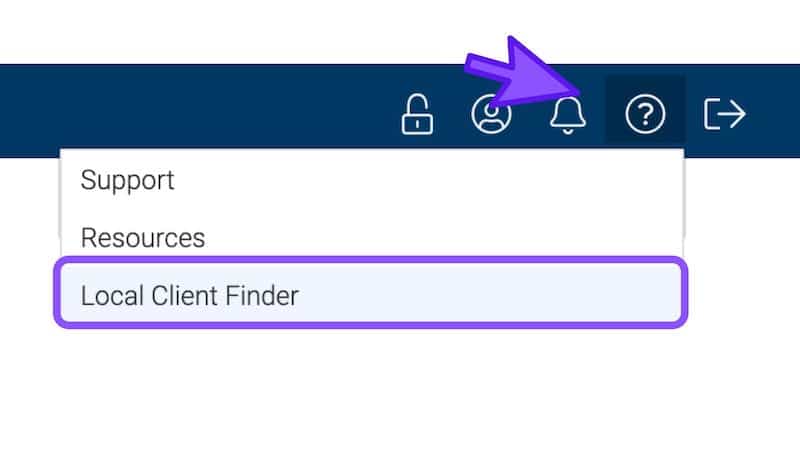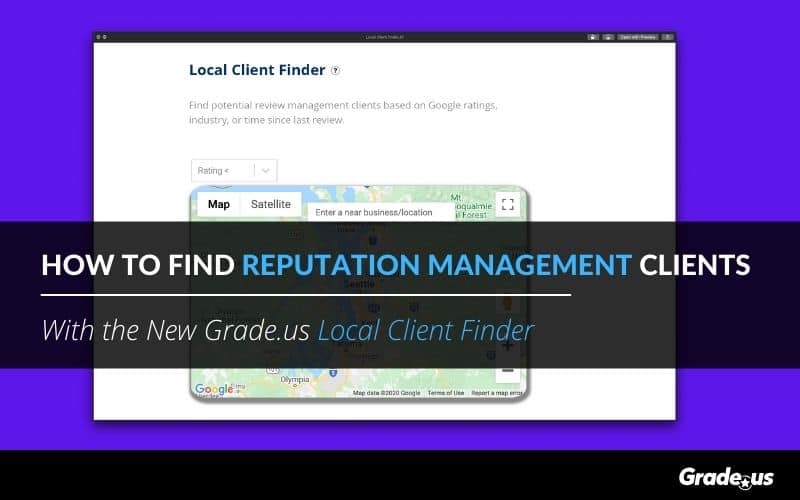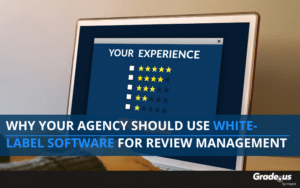The majority of marketing agencies depend on referrals and word of mouth. Most agencies have had significant fluctuations with their client rosters over the last few months. Even if you’ve been in the review management business for years, the pandemic has most likely flipped things upside now and you may have found yourself going back to the prospect hunt.
On top of that, lead generation is difficult when most small businesses are either doing their marketing themselves or doing nothing at all. The good news is, there are plenty of ideal prospects out there that could benefit from your services, but they can be hard to find. If you don’t know how to find clients for reputation management, we’ve got you covered.
If you are looking for reputation management clients, trying to replenish your client roster due to COVID-churn, or simply prospecting to increase revenue, we can help.
Grade.us is excited to deliver a brand new tool to help you generate a list of businesses that are qualified for cold outreach. If you’re the type of agency owner or consultant that has a way with words and just needs a phone number to secure new business, you’re going to want to get your hands on the Local Client Finder.
Table of Contents
Defining the ideal reputation management client
When you’re evaluating the viability of a new prospect, the first step is checking out their reviews:
- Do they have any Google reviews?
- How many reviews do they have?
- What’s their Google review rating?
- When was the last review left on their Google My Business listing?
Over the past few months, people did not stop writing reviews. As businesses reopen, customers are checking out reviews to decide whether businesses are adapting and continuing to deliver the same quality of service that they were prior to the pandemic.
You better believe that consumer confidence is more important now and reviews from 5 or 6 months ago are significantly less valuable than a review left in the past few weeks.
So if you’re looking at a business and they don’t have a review over the past few weeks, let alone the past few months, they need to put a review generation strategy in place ASAP.
Here’s how I would rank businesses as potential reputation management clients:
1. Great Reputation – No recent reviews
These businesses are obviously well run. In the past, their customers have loved them. They have a ton of great reviews that highlight everything that they have going for them. For some reason, they have not started getting new reviews. Perhaps they have just reopened their business and they have focused on other priorities like business operations.
2. Great Reputation – Low review volume
You can see that this business has a high star rating. They have a few recent reviews. But when you compare them to their competitors, they just don’t have the same quantity of reviews and are buried in Google Maps no matter what keywords you search for locally. This business might be loved by customers who write reviews for them organically, but the business does not have any process in place to request reviews.
3. Solid Reputation – Not engaged
What if they don’t have the best reviews? Maybe they have a range of 3, 4, and 5-star reviews, but they’re not in that top tier of businesses in their industry. Maybe they’re not responding to negative reviews. This isn’t the worst thing! This business obviously has something going for them. As a reputation management agency, you can guide them to use negative reviews to help improve their business. Maybe there are some easy to address issues that just need to be pointed out to them. There’s an opportunity here to help them respond to their negative reviews and generate some more positive reviews.
Using industry and local parameters to find clients
When you develop your client roster for your digital marketing agency, you might have a specific type of clientele that you work with.
- Do you only work with a few specific industries or are you industry-agnostic?
- Are you more location-based with your client base or are you nationally available?
If you have lost clients and are replenishing your client roster, you might find yourself at a crossroads with an opportunity to reposition your agency. There are advantages and disadvantages to narrowing yourself to a niche market.
Potential advantage:
- You’re a specialized expert who knows your industries or geography nuances better than anyone else.
You can’t underestimate the value of this advantage. When you can speak at a high level about your area of expertise, your prospects are more likely to trust your authority that you can address their specific business. Someone who works exclusively with dentists is going to have a much better understanding of the services offered, terms their clients search for, and insights into how they can grow their practice and differentiate from competitors.
Potential disadvantages:
- Are there enough clients in the industry?
- Can the industry be brought to its knees by something like a pandemic?
If you are only working with hotels, it’s an uphill battle right now and for the foreseeable future. The travel industry has taken a major hit. There’s insurance in diversifying your client base and having at the minimum 2-3 industries that you serve.
When you have your desired ideal clientele, industries, and locations established, you can start prospecting for some cold outreach.
Keyword research for your ideal clients
When your agency focuses on a specific industry, determining which keywords to use for prospecting becomes a bit easier. You’ll want to approach keyword research for clients the same way you would perform keyword research for them if you were providing SEO services.
There are a variety of keyword strategy blog posts and tools out there:
- Local SEO: A Simple (But Complete) Guide – Ahrefs
- Local SEO: The Definitive Guide – Backlinko
- 10 Better Ways to Do Keyword Research for Local SEO – LocalVisibilitySystem
Keyword Research Tools (Paid):
Keyword Research Tools (Free):
Pro-tip: Don’t let that keyword list go to waste. You can use the AuthorityLabs local keyword Rank Tracker to measure your clients’ performance.
But you don’t necessarily need a keyword tool to use the Local Client Finder.
When you’re looking for new clients, you’ll want to start from a high level.
Include the following combination of the following terms in your search:
- Industry
- Business Category
- Business Service/Product
- Intent keywords like “near me”
- City
- Neighborhood
- Zip Code
For best results, choose keywords that are industry-specific with local intent.
Examples:
- Dentists near me Miami
- Real estate virtual tours Brooklyn
- Spa facial San Diego
- Landscapers Dallas, TX
- Family law 94127
Want to take the Local Client Finder for a spin?
How to find clients using the Local Client Finder
To access the Local Client Finder, click on the ? icon at the top right of your dashboard. You’ll see a drop-down menu with the Local Client Finder.

Note: If you are an agency or reseller and are logged into your white label account, you will need to follow these instructions to access your Agency Resources:
- Go to https://grade.us/signin and put in your username/password.
- Once it redirects you to the white label dashboard, go ahead and log in as you would.
- Then, you can browse to https://www.grade.us/business (bookmark it) to get into the Grade.us-branded dashboard with the Local Client Finder tab!
The Local Client Finder allows you to find potential review management clients based on Google reviews. Use the tool to identify small businesses in your preferred industry and area with low ratings or infrequent reviews.
To use the Local Client Finder, enter your keyword and location into the search field and press enter.
When you enter your search term the Local Client Finder will generate a list of businesses that includes:
- Business Name
- Google Rating
- Last Review Written
- Phone Number
Click the “Export CSV” button to access your list so you can start calling businesses.
Watch the video walkthrough below to see how it works:
Cold call template for selling reputation management
Now that you have your list of businesses, you’re almost ready to start your cold call outreach.
When it comes to cold calling, if it’s obvious that you’re trying to pitch right out of the gate, you’ve already lost. Your primary goal of the call is to schedule a follow-up discovery call. You’re not going to close the deal on your first call 99 times out of 100.
You’re establishing rapport, generating some intrigue about what you’re offering, and securing the next conversation.
Personalization is key when doing cold outreach, so it is important that you spend time on your messaging, make it your own, and do some basic research before making the call.
You found them via Google My Business, so they have that part of their digital marketing covered, but there are several other questions you should answer.
Is their Google My Business listing fully complete? If not, there’s an opportunity for you to help them.
Do they have a website and does it provide COVID information? If not, that’s something that’s going to impact their sales. Another opportunity.
How many reviews? Star rating? Last review? Write down their 3 most recent reviews. When you mention a specific review on the call, it’s going to resonate with them.
Before you even start, check out this great advice from Steli of Close.io.
Once you’ve collected your notes, you’re ready for the conversation. We recommend you approach it like this:
1. Introduce yourself. Make sure you clearly state your name and the company you work for.
2. Establish a relationship. Make sure to ask if they have a couple of minutes, be friendly, and remember to personalize. Are you enjoying the sunshine in Tampa today? Or hope you are staying dry, the weather in Seattle has been very temperamental!
3. Mention their most recent reviews or their Google reviews in general. Don’t act pushy, or focus too heavily on the negative by being critical of their reviews. You want to ask leading questions. You’re trying to find out if they currently are aware of their reviews. Are they doing anything to get reviews? If their Google rating is above 3.5, point out that you noticed that they have some great reviews! Even casually mention one of the 3 reviews that you researched and indicate how that great review is an excellent reflection of their business.
4. Identify the opportunity. Many sales scripts will tell you to focus on the problem. You’ll have more success when you position reputation management as an opportunity. When your prospects have a positive Google rating, but only lack volume or recency, you can explain how by adding more reviews, their business will appear more often in Google search results and that customers will more likely choose their business over competitors if they have more and better reviews.
5. Plant the seed of reputation management. Now, if the vibe feels right, you can focus primarily on review generation and other review sites. You can save review monitoring and review marketing for your discovery call. You’ll want to mention how you can help them get more positive reviews using your reputation management services. This is where you can start to feel out if they’re interested and transition to scheduling the discovery call. You can also deliver your elevator pitch at this point.
6. Set up the next meeting. If they seem open to it, make sure to schedule a day and time for your next call. Suggest a time tomorrow or this week to drive urgency, and follow up with a calendar invite and conferencing link.
There may be an opportunity in the future to try for an in-person meeting – but highlighting your ability to support them virtually right now is very important.
The most important thing in this phase is to end strong, clarify the next steps, and leave with a next call scheduled. It’s best to assume that the business owner might still be hesitant to schedule an in-person meeting (and you may be apprehensive as well). You can assure them that you can provide them with services all virtually. Use a tool like Calend.ly to lock in the meeting on your calendar and a video call tool like Zoom, Google Meet, or Skype.
Additional resources for pitching online reputation management
You’ve got everything you need to find clients for review management. Like everything, cold calling takes practice, but the Local Client Finder provides all of the key information that you need to determine if a business could benefit from review generation.
- If they haven’t received a review in the past month, they’re a candidate.
- If they don’t appear in the local pack for top-level keywords, they’re a candidate.
- If they don’t have the number of reviews comparable to competitors, they’re a candidate.
Once you secure the discovery call, we have a variety of tools to help you research the prospect further and deliver a pitch that will help you add clients to your roster:
Bonus use case: Competitor research
One of the fun things about developing SaaS software?
Customers and employees very quickly let you know what works and what doesn’t. They also discover creative ways to use your tools that you might not have anticipated.
Hours after releasing the tool to our customer base, our head of business development, Boris Bronshteyn, reached out and shared how our non-agency customers could use the tool.
“Did you know that you can use this for competitor research?”
Frankly, it’s a really smart use of the Local Client Finder for single and multi-location businesses to do a little digging into the competition.
If you already have a list of local keywords that you’re trying to rank for. This tool can help you identify other businesses that are ranking for the keyword in your area so you can easily see who you’re competing with.
If you discover another use for the tool or have any other recommendations on how to prospect, call, and close review management clients, please share them in the comments or let us know!









